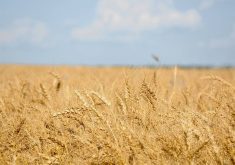Western Canadian feeder cattle prices took a break from the upward trend and traded on a softer tone last week. Adverse wet weather in the most regions had buyers discounting the market as they factor in feedlot inefficiencies.
At the same time, the Alberta slaughter market was steady to $2 higher, limiting the slippage in replacement cattle. Steers weighing just over 700 pounds brought back $135 per hundredweight (cwt) in central Alberta; the same type of cattle in central Saskatchewan sold for $130/cwt; and Manitoba averaged $125/cwt for lighter seven-weight cattle.
Read Also

Only small adjustments in latest USDA supply/demand estimates
Corn ending stocks in the United States for 2025/26 will be slightly tighter than earlier expectations, but still record-large, according to updated supply/demand tables from the U.S. Department of Agriculture released Feb. 10.
Lightweight feeder cattle remain hot with limited supplies available from now until fall. However, backgrounding operators will have larger volumes of 700- to 900-pound cattle available over the next month.
Demand for grass cattle slowed last week, but will pick up in late April. Most pastures are still covered in snow and it will be early May before sufficient growth is available. Alberta and Saskatchewan temperatures are expected to be eight to 10 degrees below normal over the next 15 days, limiting the spring melt.
U.S. slaughter cow prices surged $8/cwt last week, selling in the range of $83-$93/cwt. Cow-calf producers on both sides of the border appear to be liquidating older stock and bidding up the bred heifer market to modernize the herd. I still feel there is further upside in the heifer market for herd replacement. Strong prices for beef cow replacements will be a major factor supporting the feeder market over the next six to eight months. The feeder market is functioning to encourage expansion.
— Jerry Klassen is a commodity market analyst in Winnipeg and maintains an interest in the family feedlot in southern Alberta. He writes an in-depth biweekly commentary, Canadian Feedlot and Cattle Market Analysis, for feedlot operators in Canada. He can be reached by email at [email protected] or at 204-287-8268 for questions or comments.















